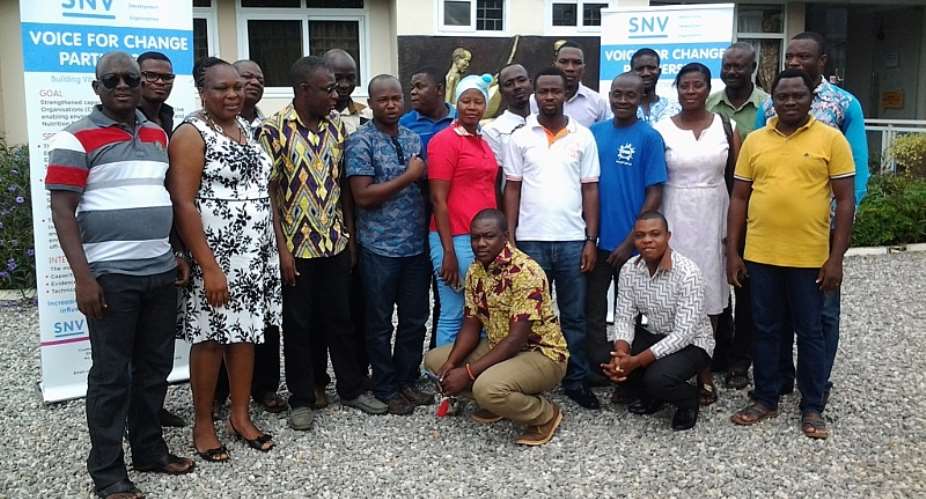The Northern Region leads as the region with the most number of children under age 5 with stunted growth.
The percentage of stunting in the region is 36%, which is far above the national average of 22%.
This was revealed at a media workshop in the Upper West Regional capital Wa, by SNV, a Netherlands Development Organization working to promote social change through a partnership with the media.
Stunting is the impaired growth and development that children experience from poor nutrition, repeated infection, and inadequate psychosocial stimulation.
Despite the Region's status as the food basket of the country, producing enough food for domestic consumption and sale, several children under age five suffer from malnutrition.
Zakaria Abdul Jail, the adviser on nutrition for the SNV's programme dubbed, “Voice4Change Partnership” explained that the implications of stunting on the health and economy of the country is severe, hence serious attention must be given to it.
“The implications are that if children are stunted, their cognitive abilities are affected, their brains turn not to develop well and this has impact on enrollment in schools. It has impact on the person’s physical development in the future. Reducing stunting alone for Ghana or underweight in general has enormous benefits for Ghana in the sense that we would be reducing public investment in these areas. For instance, there is a report that suggests that the cost of hunger that is malnutrition indicators in Ghana is about 5% of our Gross Domestic Products (GDP). So you can imagine what this amount of our GDP can do to other sectors,” he noted.
The Voice for Change Partnership (V4C), is an evidence-based advocacy programme being implemented by SNV Netherlands Development Organization in partnership with the International Food and Policy Research Institute (IFPRI), and funded by the Dutch Ministry of Foreign Affairs.
The programme will run from 2016 to 2020 in some selected countries including Ghana.
In Ghana, the programme is focusing on 3 main intervention areas; Food and Nutrition security, Renewal Energy and Water and Sanitation & Hygiene (WASH).
–
Mohammed Aminu M. Alabira citifmonline.com





 Whoever participated in the plunder of the state must be held accountable – Jane...
Whoever participated in the plunder of the state must be held accountable – Jane...
 A vote for John and Jane is a vote to pull Ghana from the precipice of destructi...
A vote for John and Jane is a vote to pull Ghana from the precipice of destructi...
 I’ll repay your abiding confidence with loyalty, understanding and a devotion to...
I’ll repay your abiding confidence with loyalty, understanding and a devotion to...
 ‘I’ve learnt deeply useful lessons for the future' — Serwaa Amihere breaks silen...
‘I’ve learnt deeply useful lessons for the future' — Serwaa Amihere breaks silen...
 I’m sorry for the embarrassment – Serwaa Amihere apologises for leaked sex video
I’m sorry for the embarrassment – Serwaa Amihere apologises for leaked sex video
 Dumsor: Matthew Opoku Prempeh not in charge of Energy sector – Minority
Dumsor: Matthew Opoku Prempeh not in charge of Energy sector – Minority
 Adu Boahen’s murder: Police arrest house help who was in possession of deceased’...
Adu Boahen’s murder: Police arrest house help who was in possession of deceased’...
 Akufo-Addo nominates Felicia Attipoe as Tema West MCE
Akufo-Addo nominates Felicia Attipoe as Tema West MCE
 Election 2024: I can't have someone I defeated twice as my successor – Akufo-Add...
Election 2024: I can't have someone I defeated twice as my successor – Akufo-Add...
